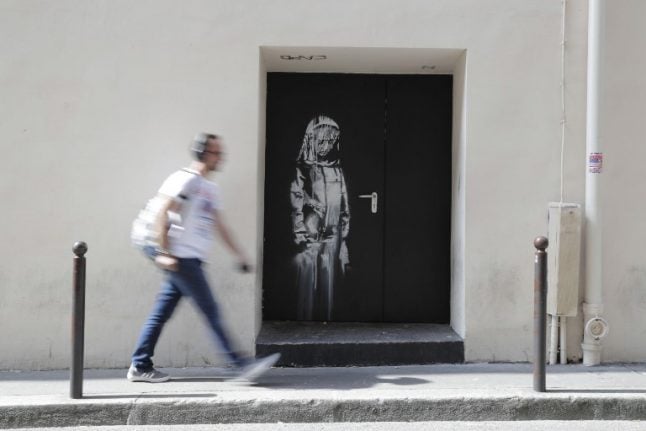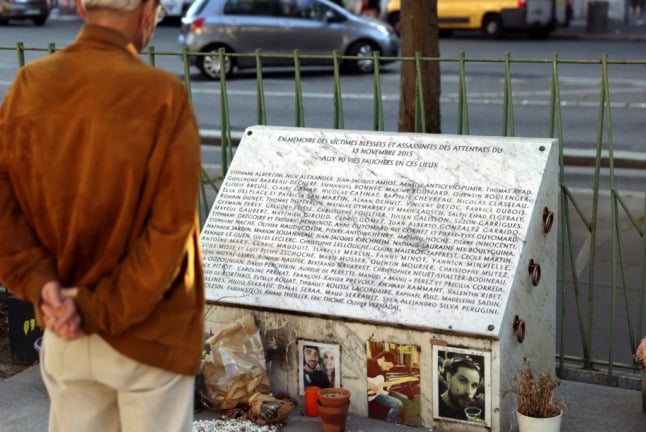BANKSY
Banksy art work stolen from Bataclan in Paris
A painting in homage to terror victims by famous street artist Banksy has been stolen from the Bataclan concert hall in Paris, where 90 people were killed in 2015 in a jihadist attack.
Published: 27 January 2019 09:22 CET

In this June 2018 file photo, a man walks past artwork by street artist Banksy in Paris on a side street to the Bataclan concert hall. Photo: Thomas Samson/AFP
The white stencilled oeuvre showing a sad-faced girl on one of the emergency doors of the famed Parisian venue was cut out and taken away.
“Banksy's work, a symbol of recollection and belonging to all: locals, Parisians, citizens of the world has been taken from us,” the establishment said, stressing the staff's “deep indignation.”
A source close to the investigation told LCI television that “a group of hooded individuals armed with angle grinders cut the painting and took it away in a truck” on the night of Friday to Saturday.
This work along with other similarly-themed paintings popped up in Paris last June and has been attributed to the reclusive British street artist.
Banksy, whose identity is known to only a handful of friends, caused a sensation in October when one of his paintings began shredding itself, just after selling for $1.4 million (€1.2 million).
Url copied to clipboard!


 Please whitelist us to continue reading.
Please whitelist us to continue reading.